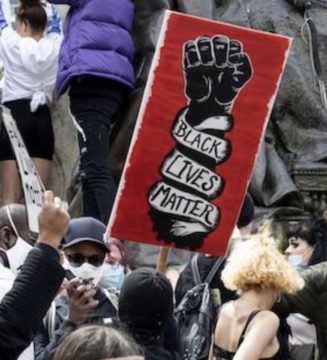Christabel Cooper in Prospect:
 We all know the story by now. The “culture wars” used to only be fought in America. In Britain, party support was strongly linked to views on an economic left-right axis; if you believed in extensive government intervention and redistribution then you voted Labour, if you believed in a small state and leaving markets to their own devices, you voted Conservative. But in the last decade, beliefs around values and identity have become increasingly important in UK as well as American politics—at the last UK general election, a voter’s position on values (for example whether they thought the death penalty should be reintroduced) was just as likely to determine their vote as their position on economics.
We all know the story by now. The “culture wars” used to only be fought in America. In Britain, party support was strongly linked to views on an economic left-right axis; if you believed in extensive government intervention and redistribution then you voted Labour, if you believed in a small state and leaving markets to their own devices, you voted Conservative. But in the last decade, beliefs around values and identity have become increasingly important in UK as well as American politics—at the last UK general election, a voter’s position on values (for example whether they thought the death penalty should be reintroduced) was just as likely to determine their vote as their position on economics.
The EU referendum result exemplified this split: overwhelmingly people with very liberal attitudes voted to remain in the EU whereas those with more conservative views (who, for example, were often hostile towards immigration) tended to vote for Brexit. At a certain point the analysis becomes stretched. The winning Leave vote has frequently been portrayed as a protest by this socially conservative majority against aloof, unresponsive liberal Remainers. Five years on, much of the UK press still paints a picture of a country riven by splits over culture and values, where social conservatives angrily reject the continued attempts of a liberal minority to enforce an unpopular “woke” agenda. The recently-launched GB News was founded on the idea that there is a large, conservative audience which feels that its side of the culture war is being ignored by existing media outlets.
But new research from the Policy Institute presents a different picture. Much of the public, it finds, is confused about terms such as “culture war” or “woke.”
More here.
